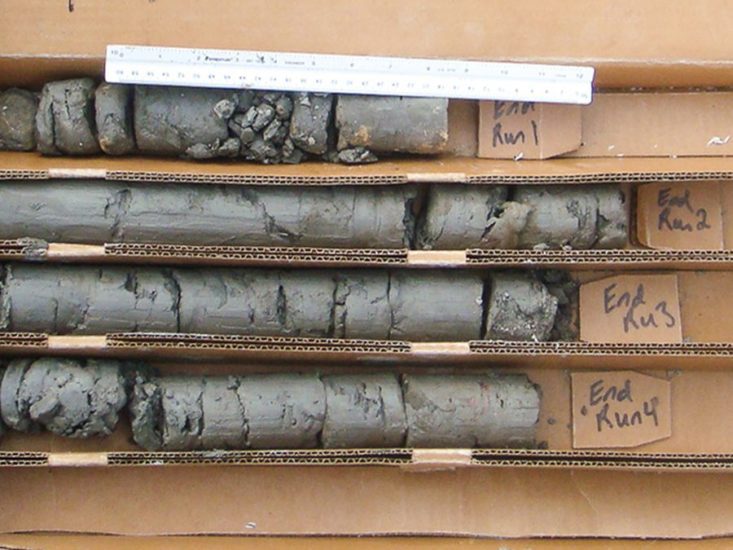
This is a frequent question from our clients, especially when we are seeking to tighten a project budget. After all, the ground looks pretty solid – especially in the summer when it is dry. That should be good enough, right?
Well, there is more to ground quality than meets the eye. The primary purposes of a geotechnical investigation are to:
An investigation’s scope includes reviewing available literature (e.g. geologic maps, soils reports, etc.); conducting on-site exploration; mapping / logging; sampling; and laboratory testing of samples obtained in the field. The final geotechnical report summarizes field and laboratory findings, conclusions regarding the geotechnical impacts of the site, and recommendations for the most geotechnically suitable construction.



The resulting data allows us to determine design criteria for foundations, retaining walls, site grading, and site drainage. The criteria inform load bearing capacities and anticipated lateral forces from soil and rock on-site. This information is used by structural engineers, civil engineers, architects, contractors, and construction testing technicians through the end of construction on a project.
“We have appreciated the quick communications from early services of geotechnical to ongoing construction staking and construction material testing services.”
– Joshua Foster,
J.E. Foster, General Contractor
A number of potential findings can be major problems if not identified prior to design. Physical borings, while discrete in nature, can help identify buried obstacles or voids, uncontrolled fill, unusually soft soils, and subsurface conditions that require special handling. Not only does this help us understand how the earth will affect man-made structures, but geotechnical investigations also expose the impacts developments could impose on the ground. Geotechnical engineers can use this information to provide detailed recommendations tailored to your specific building or project. Working with the client, contractor, architect, civil engineer, and structural engineer, geotechnical engineers will help implement the most efficient and cost-effective construction methods with the least risk of poor future performance.
Buildings, slope stabilization, submarine engineering, solid waste landfills, bridges, airports – geotechnical investigations are critical for so many projects, with the benefits far outweighing the costs. Typically, a geotechnical investigation ranges from 1.5% to less than 0.02% of construction costs. Yet, a geotechnical investigation could save many times that by informing efficient construction methods and guarding the project against future costly structural repairs.
So when evaluating a project’s budget, the question should not be “can I afford a geotechnical investigation?” Rather, it should be “can I afford not to perform a geotechnical investigation?” As with any business decision, it is about the risk one is willing to tolerate.


You’re building the future. Let’s talk about your project and see how we can partner to can make it a success.